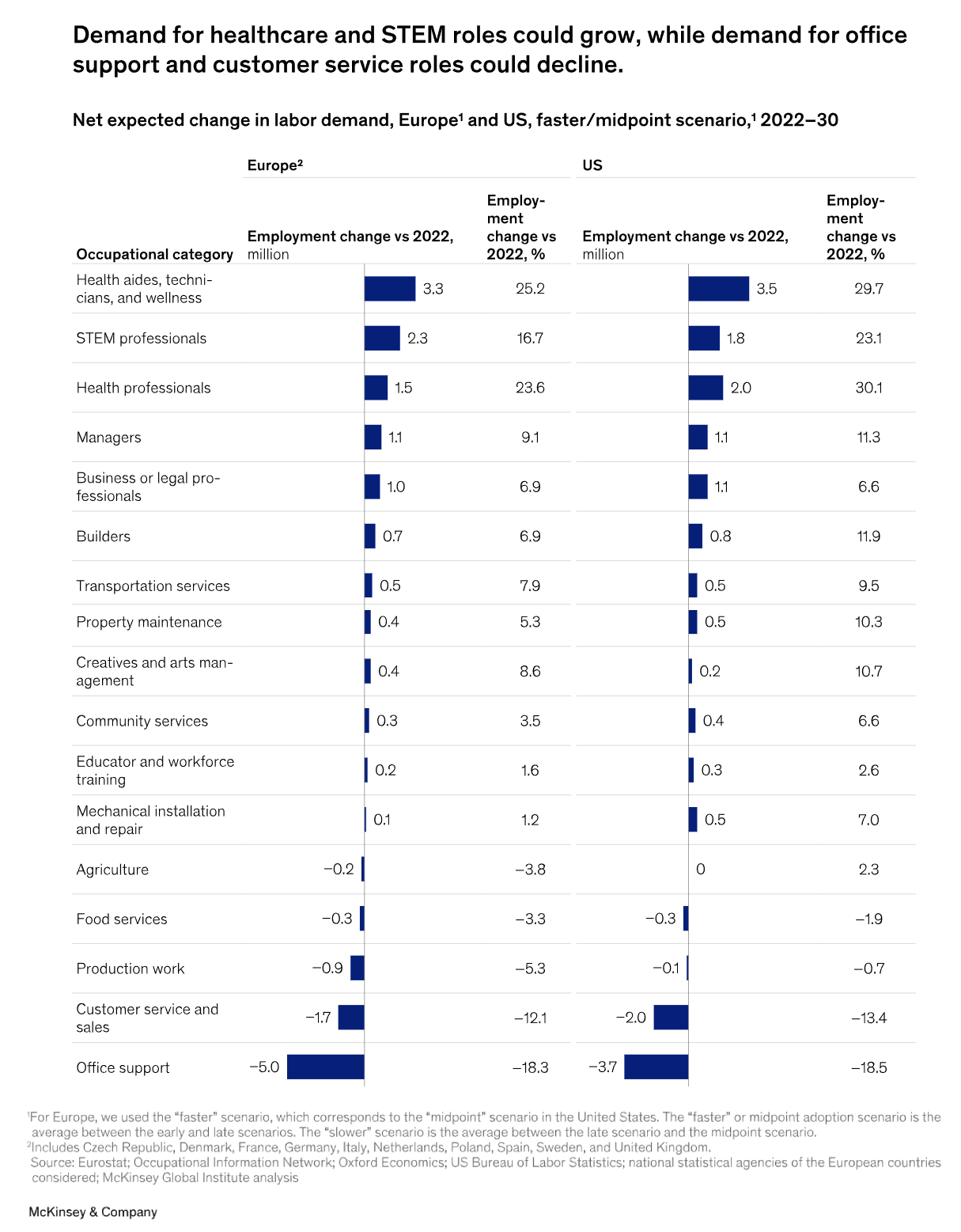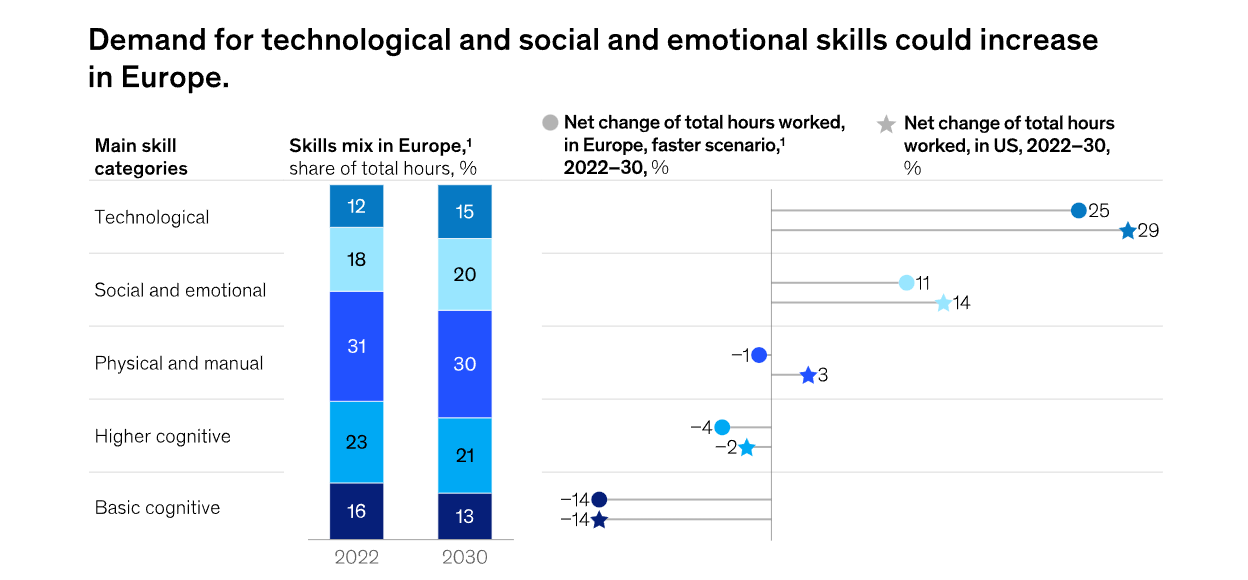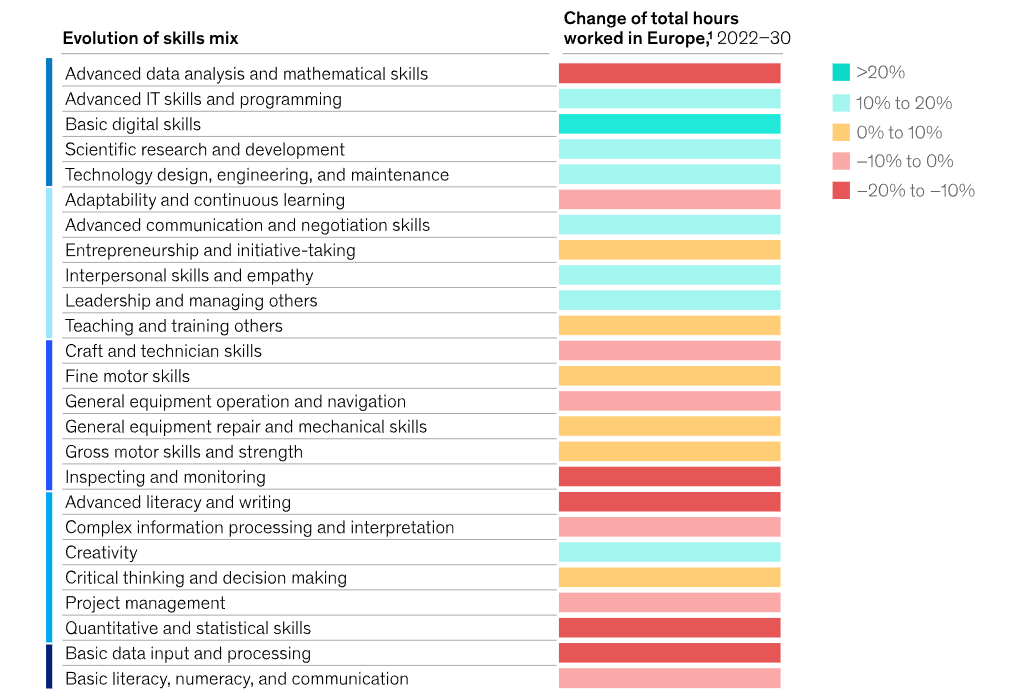
The Age of AI: How to Prepare for Change and Stay in the Game.
Date
The rapid growth of research into the use and implementation of AI has already fundamentally changed the way executives view the skill sets of candidates for various positions in companies. About 66% of business leaders surveyed by Microsoft and LinkedIn said that they consider AI skills to be basic in interviews and hiring. They also note the growing value of the ability to quickly learn new information, specifications and instantly adapt to business needs.
Nowadays skills that are so valuable and in demand have a slightly different perspective of relevance in five or ten years. The global implementation of AI in all areas of business could cause forced job changes for more than 12 million Europeans and significantly change the labor market by the end of 2030.
Such data were published by McKinsey in its study in the summer of 2024.
This amount doubled the figure recorded during the COVID-19 pandemic. At the same time, demand for specialists in the fields of STEM, healthcare and other high-paying professions is expected to increase, while the need for office workers, production workers and support staff will decrease. Social and emotional skills, or so-called soft skills, will also become increasingly important. Company leaders in Europe and the United States emphasize that, along with skilled developers and data analysts, it is important to have specialists who have critical thinking, creativity and teaching skills.

The chart illustrates the projected growth in demand for STEM and healthcare professionals, as well as a decline in demand for office workers, production staff, and customer service representatives.

The chart shows the growth in demand for technological and socio-emotional skills, while the demand for physical, manual, and high cognitive skills is decreasing.

Here is a more detailed breakdown of skills by category
As can be clearly seen from the study, in order to prepare for the projected further changes in the labor market and feel confident, it is necessary to actively develop now:
1. Technology skills
- Will remain relevant and only increase in demand. With the development of AI, automation and digitalization, IT skills (programming, data science, cybersecurity) will be needed in both current and new future professions.
- The type of skills will change. For example, basic coding skills may become less necessary thanks to generative AI, but specialized knowledge in AI, machine learning or the development of complex algorithms will be crucial.
2. Social and emotional skills
- Social and emotional skills will become even more important. People will increasingly work in hybrid teams with machines, so communication, leadership, adaptability and emotional intelligence skills will prevail in the skill set.
- Cultural competence. The growth of globalization and remote work makes understanding cultural differences and effective interaction in international teams mandatory.
3. Creativity and Innovation
- Creativity and innovation will continue to be in demand. AI can automate routine tasks, except for generating new ideas, innovative approaches, and out-of-the-box thinking, these skills remain uniquely human strengths. For instance, in marketing or design, AI can help create basic concepts, but the final creative approach remains with the human.
4. Rapid learning and adaptation skills
- As technology evolves faster than ever before, the ability to learn throughout life is becoming a necessary skill that will help you remain competitive in the job market.
The future of IT promises challenges, but also opportunities for those who can adapt quickly, learn and find new ways to develop. The further implementation of AI and automation will lead to significant changes in the labor market by 2030. This will require significant efforts from candidates: from radical professional transitions to rapid upskilling, especially for workers employed in low-paid sectors. Active implementation of technologies and re-profiling of workers can contribute to the growth of overall company productivity by up to 3% per year in Europe by 2030, meanwhile lingering will limit this growth to 0.3%.
The skills in demand today are not disappearing completely, but are changing their form and specificity. Technological, creative and socio-emotional skills will become even more valuable. At the same time, it will be important to adapt quickly to changes by learning new technologies and working methods.



